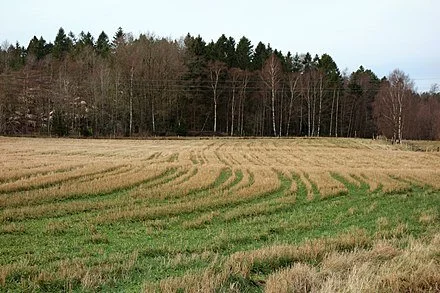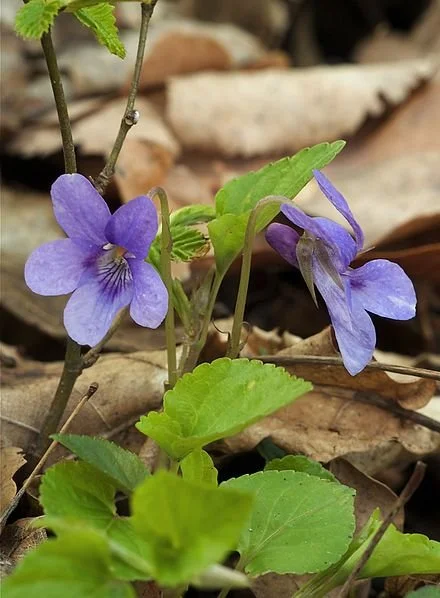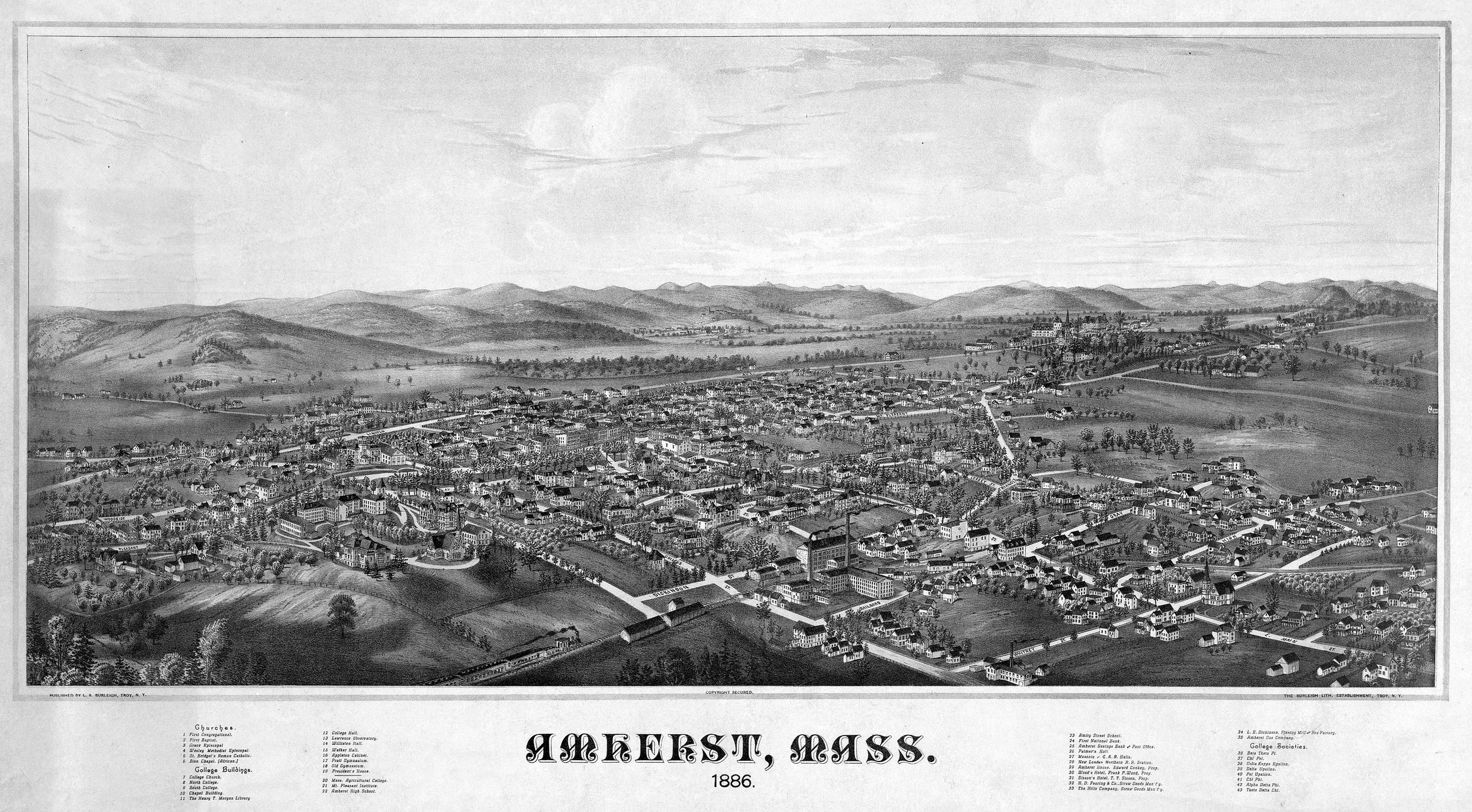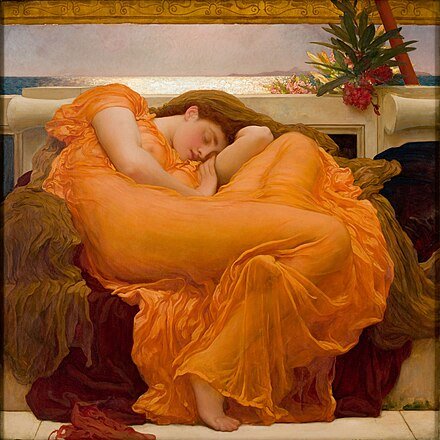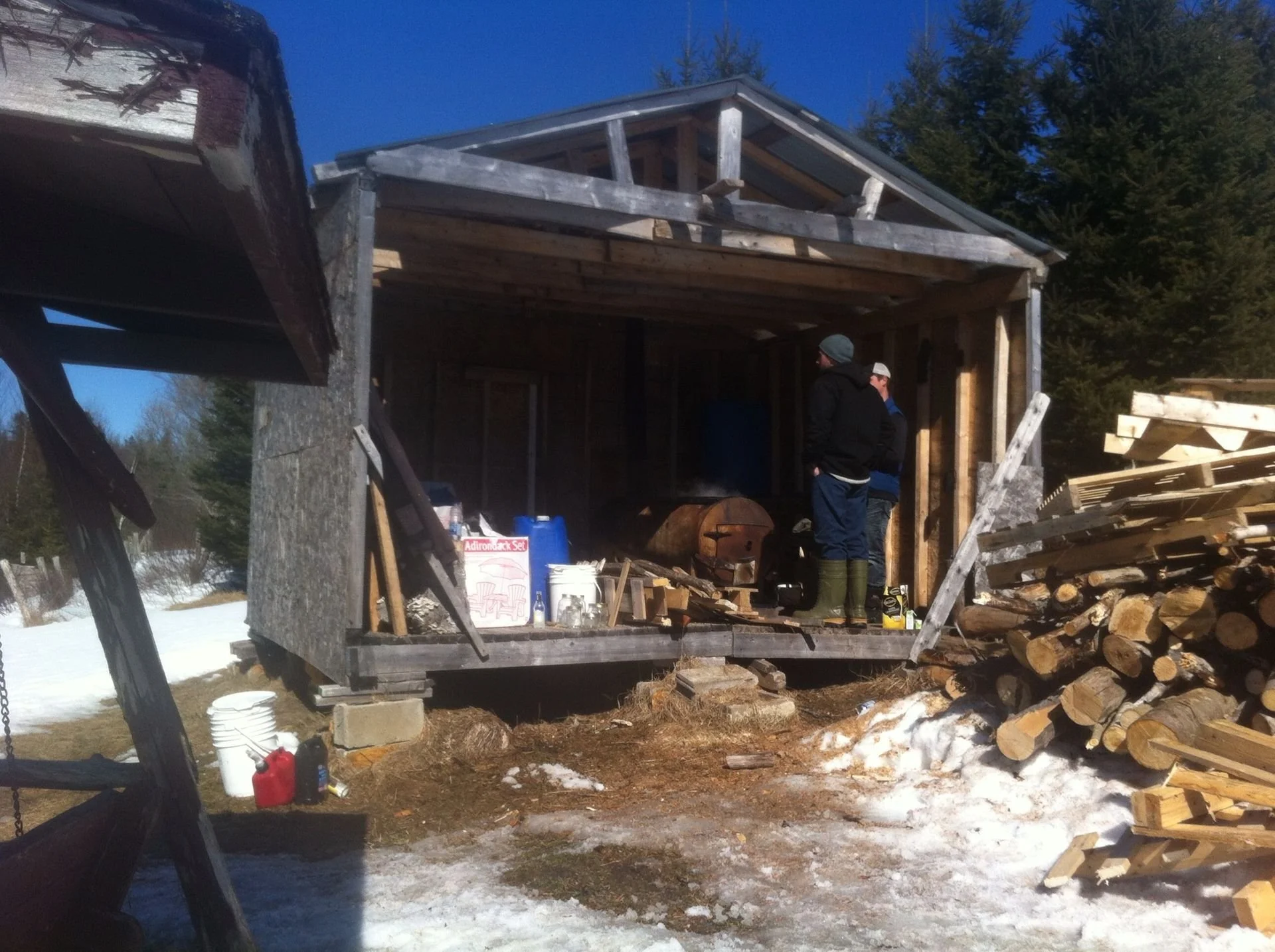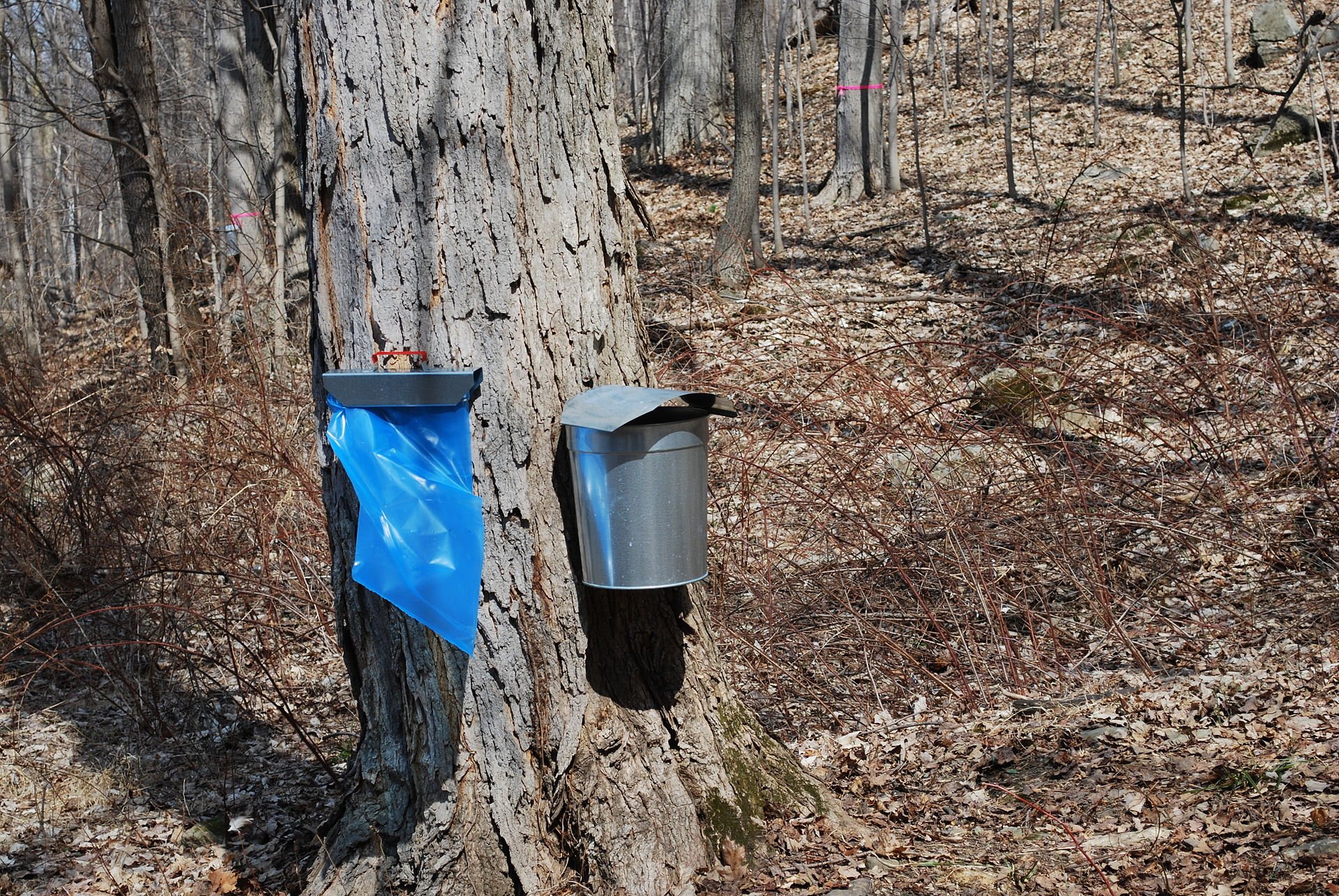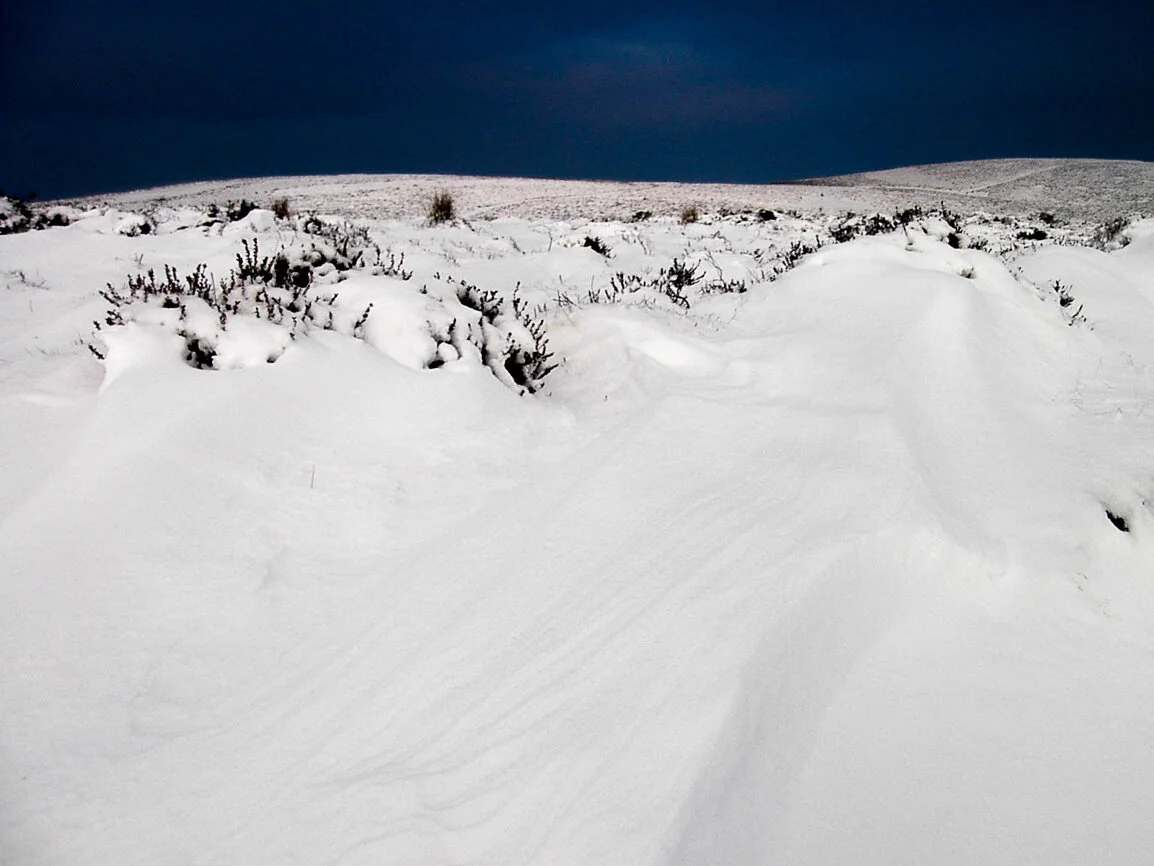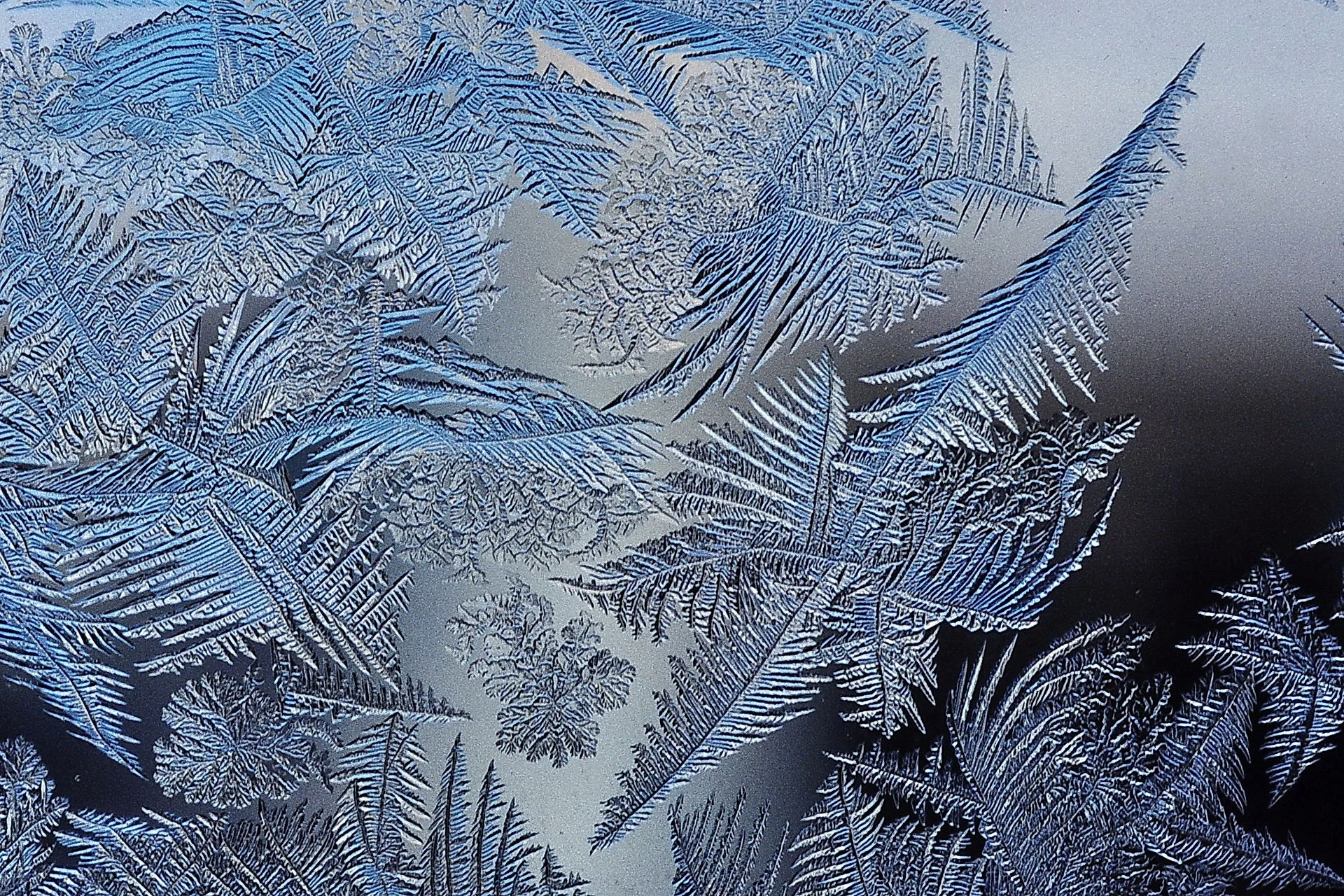
‘Often seen, seldom felt’
A Field of Stubble, lying sere
Beneath the second Sun—
Its Toils to Brindled People
Its Triumphs—to the Bin—
Accosted by a timid Bird
Irresolute of Alms—
Is often seen—but seldom felt,
On our New England Farms—
By Emily Dickinson (1830-1886). See The Belle of Amherst a 1976 play based on her work.
'A furtive look'
An altered look about the hills;
A Tyrian light the village fills;
A wider sunrise in the dawn;
A deeper twilight on the lawn;
A print of a vermilion foot;
A purple finger on the slope;
A flippant fly upon the pane;
A spider at his trade again;
An added strut in chanticleer;
A flower expected everywhere;
An axe shrill singing in the woods;
Fern-odors on untravelled roads, —
All this, and more I cannot tell,
A furtive look you know as well,
And Nicodemus' mystery
Receives its annual reply.
‘‘April,’’ by Emily Dickinson (1830-1886) of Amherst, Mass.
‘Accosted by a timid bird’
— Photo by W.carter
A Field of Stubble, lying sere
Beneath the second Sun —
Its Toils to Brindled People thrust —
Its Triumphs — to the Bin —
Accosted by a timid Bird
Irresolute of Alms —
Is often seen — but seldom felt,
On our New England Farms —
— By Emily Dickinson (1830-1886)
Doesn’t stand still
“It storms in Amherst {Mass.} five days - it snows, and then it rains, and then soft fogs like vails hang on all the houses, and then the days turn Topaz, like a lady's pin.’’
— Emily Dickinson (1830-1886), American poet, in letter to Mrs. Samuel Bowles dated Dec. 10, 1859
Two summers
“Flaming June’’ (1895), by Lord Leighton (1830-1896)
There is a June when Corn is cut
And Roses in the Seed—
A Summer briefer than the first
But tenderer indeed
As should a Face supposed the Grave's
Emerge a single Noon
In the Vermilion that it wore
Affect us, and return—
Two Seasons, it is said, exist—
The Summer of the Just,
And this of Ours, diversified
With Prospect, and with Frost—
May not our Second with its First
So infinite compare
That We but recollect the one
The other to prefer?
— Emily Dickinson (1830-1886), lifelong resident of Amherst, Mass.
And go away February
In March: A "sugar shack" where maple sap is boiling.
Maple-sap collecting.
Dear March—Come in—
How glad I am—
I hoped for you before—
Put down your Hat—
You must have walked—
How out of Breath you are—
Dear March, how are you, and the Rest—
Did you leave Nature well—
Oh March, Come right upstairs with me—
I have so much to tell—
I got your Letter, and the Birds—
The Maples never knew that you were coming—
I declare - how Red their Faces grew—
But March, forgive me—
And all those Hills you left for me to Hue—
There was no Purple suitable—
You took it all with you—
Who knocks? That April—
Lock the Door—
I will not be pursued—
He stayed away a Year to call
When I am occupied—
But trifles look so trivial
As soon as you have come
That blame is just as dear as Praise
And Praise as mere as Blame—
—Emily Dickinson (1830-1886), a lifelong resident of Amherst, Mass.
'Lost in fleeces'
—- Photo by Sean the Spook
It sifts from leaden sieves,
It powders all the wood,
It fills with alabaster wool
The wrinkles of the road.
It makes an even face
Of mountain and of plain, —
Unbroken forehead from the east
Unto the east again.
It reaches to the fence,
It wraps it, rail by rail,
Till it is lost in fleeces;
It flings a crystal veil
On stump and stack and stem, —
The summer’s empty room,
Acres of seams where harvests were,
Recordless, but for them.
It ruffles wrists of posts,
As ankles of a queen, —
Then stills its artisans like ghosts,
Denying they have been.
— By Emily Dickinson (1830-1886), of Amherst, Mass.
Carpe diem
Gravestone of Emily Dickinson, in West Cemetery, Amherst, Mass.
That it will never come again
Is what makes life so sweet.
Believing what we don’t believe
Does not exhilarate.
That if it be, it be at best
An ablative estate —
This instigates an appetite
Precisely opposite.
— Emily Dickinson
”An ablative estate’’ refers to ablation, an operation involving removing body tissue — something that heals but that also involves losing part of the patient.
Expectation and prognostication
In New Britain, Conn., after the Great Blizzard of March 11-14 1888.
"March is the month of expectation,
The things we do not know,
The Persons of Prognostication
Are coming now.
We try to sham becoming firmness,
But pompous joy
Betrays us, as his first betrothal
Betrays a boy."
- Emily Dickinson, XLVIII
'A furtive look'
"An altered look about the hills;
A Tyrian light the village fills;
A wider sunrise in the dawn;
A deeper twilight on the lawn;
A print of a vermilion foot;
A purple finger on the slope;
A flippant fly upon the pane;
A spider at his trade again;
An added strut in chanticleer;
A flower expected everywhere;
An axe shrill singing in the woods;
Fern-odors on untraveled roads, —
All this, and more I cannot tell,
A furtive look you know as well,
And Nicodemus' mystery
Receives its annual reply.''
-- "Nature, Poem 9: April,'' by Emily Dickinson
'Into her inner ear'
The Emily Dickinson House, in Amherst, Mass. Most critics consider Dickinson (1830-1886) one of the greatest American poets. The house is now a museum.
"As Emily Dickinson
would not come down, I'm
sorry, but I've felt the need to climb
the worn steps to her rook,
winding up the stair
as if into her inner ear.''
From "The Upper Story'', by Mary Jo Salter
'Pompous joy betrays us'
Crocuses, the flowers most associated with March in New England.
"March is the month of expectation,
The things we do not know,
The Persons of Prognostication
Are coming now.
We try to sham becoming firmness,
But pompous joy
Betrays us, as his first betrothal
Betrays a boy."
-- Emily Dickinson, poem XLVIII
'Welcome when he goes'
-- Photo by Schnobby
"Winter is good - his Hoar Delights
Italic flavor yield -
To Intellects inebriate
With Summer, or the World -
Generic as a Quarry
And hearty - as a Rose -
Invited with asperity
But welcome when he goes.''
-- Emily Dickinson
Between haze and snow
"Besides the autumn poets sing,
A few prosaic days
A little this side of the snow
And that side of the haze.
A few incisive mornings,
A few ascetic eves, -
Gone Mr. Bryant's golden-rod,
And Mr. Thomson's sheaves."
-- Emily Dickinson, "Nature: XLIX''
Fall fashion
"The morns are meeker than they were,
The nuts are getting brown;
The berry's cheek is plumper,
The rose is out of town.
The maple wears a gayer scarf,
The field a scarlet gown.
Lest I should be old-fashioned,
I'll put a trinket on.''
-- "Autumn,'' by Emily Dickinson
'Deterred by Retrospect'
"The last of Summer is Delight --
Deterred by Retrospect.
'Tis Ecstasy's revealed Review --
Enchantment's Syndicate.
To meet it -- nameless as it is --
Without celestial Mail --
Audacious as without a Knock
To walk within the Veil."
-- Emily Dickinson, "The Last of Summer is Delight''
'Made her light escape'
"As imperceptibly as grief
The summer lapsed away,—
Too imperceptible, at last,
To seem like perfidy.
A quietness distilled,
As twilight long begun,
Or Nature, spending with herself
Sequestered afternoon.
The dusk drew earlier in,
The morning foreign shone, —
A courteous, yet harrowing grace,
As guest who would be gone.
And thus, without a wing,
Or service of a keel,
Our summer made her light escape
Into the beautiful.''
-- Emily Dickinson (of Amherst, Mass.) "Part Two: Nature, XLV''
'Shimmering grace'
"A something in a summer's Day
As slow her flambeaux burn away
Which solemnizes me.
A something in a summer's noon --
A depth -- an Azure -- a perfume --
Transcending ecstasy.
And still within a summer's night
A something so transporting bright
I clap my hands to see --
Then veil my too inspecting face
Lets such a subtle -- shimmering grace
Flutter too far for me --
The wizard fingers never rest --
The purple brook within the breast
Still chafes its narrow bed --
Still rears the East her amber Flag --
Guides still the sun along the Crag
His Caravan of Red --
So looking on -- the night -- the morn
Conclude the wonder gay --
And I meet, coming thro' the dews
Another summer's Day!"
-- Emily Dickinson, "A Something in a Summer's Day''
'Two Seasons'
There is a June when Corn is cut
And Roses in the Seed—
A Summer briefer than the first
But tenderer indeed
As should a Face supposed the Grave's
Emerge a single Noon
In the Vermilion that it wore
Affect us, and return—
Two Seasons, it is said, exist—
The Summer of the Just,
And this of Ours, diversified
With Prospect, and with Frost—
May not our Second with its First
So infinite compare
That We but recollect the one
The other to prefer?
-- ''There Is A June When Corn Is Cut,'' by Emily Dickinson
'How out of breath you are'
Dear March - Come in - How glad I am - I hoped for you before - Put down your Hat - You must have walked - How out of Breath you are - Dear March, how are you, and the Rest - Did you leave Nature well - Oh March, Come right upstairs with me - I have so much to tell - I got your Letter, and the Birds - The Maples never knew that you were coming - I declare - how Red their Faces grew - But March, forgive me - And all those Hills you left for me to Hue - There was no Purple suitable - You took it all with you - Who knocks? That April - Lock the Door - I will not be pursued - He stayed away a Year to call When I am occupied - But trifles look so trivial As soon as you have come That blame is just as dear as Praise And Praise as mere as Blame
-- Emily Dickinson "Dear March -- Come In''
-
-
